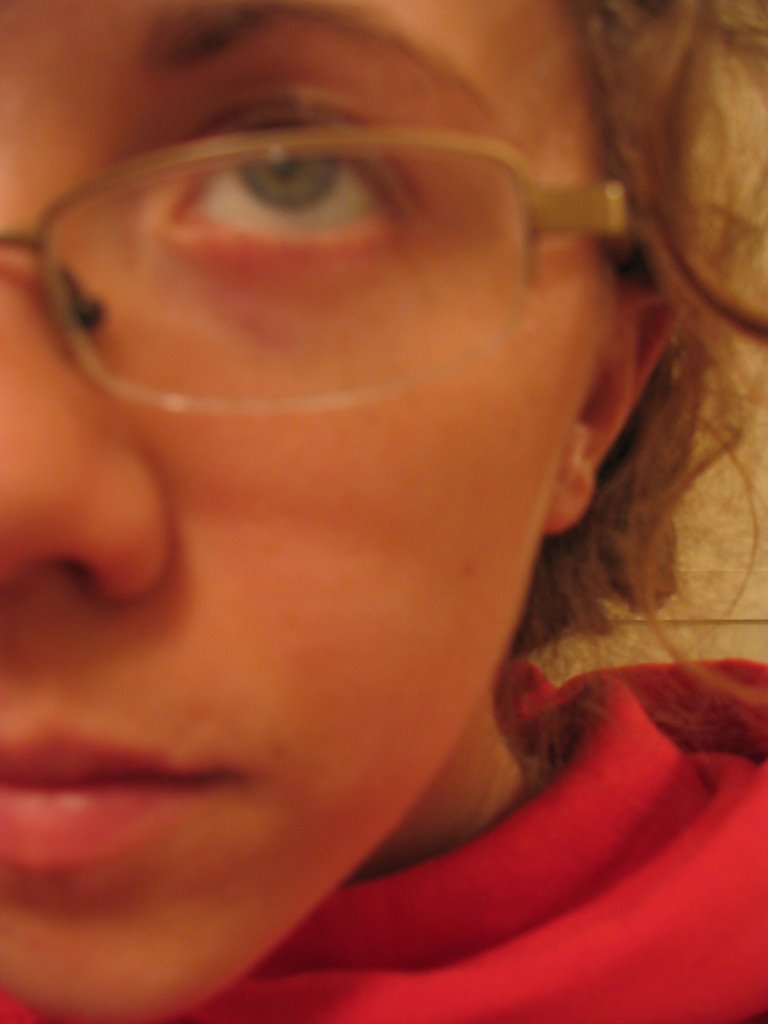We had our first standardized patient session today, something for which I felt woefully unprepared. It was supposed to focus primarily on communication skills and history-taking (right up my alley, no? You'd think...) but there was the addendum of the physical exam that made everyone a little...squirrely. Nervous, edgy, though of course everyone does their best to hide those things (I can't be the only one hyperventilating, can I? Of course, maybe I can). Some of the things we were supposed to know how to do hadn't been covered in our small groups at all; the best summary I can give of the 'musculoskeletal exam' I was taught would be, "Have them move things around and see if it hurts. Then you move them around and see if they hurt. Also, there are lots of bony landmarks you should be aware of, and everyone hurts their ankles and knees at some point so you should probably know what to do for those sorts of injuries." Standardized patients, by the way, are actors who are paid to come in, sit in exam rooms, and serve as fake patients. They give the histories from the scripts the medical school provides; they act out all the physical findings you're supposed to see (limps or tenderness or stiffness or whatever). The woman today was quite convincing; I found myself actually worrying that I might be hurting her. Some standardized patients really get into it deep, from what I've read: here at this Slate article I learned there are even those who let medical students try out their newfound pelvic exam skills (there's. not. enough. money. in. the. world. to make me do that).
We weren't even being graded, per se, on this encounter; I really shouldn't have been nervous. But we were kept standing outside the little exam rooms for almost 5 minutes, just giving us time to get more worked up (of course, some people would see this as time to 'collect their thoughts,' I suppose--cognitive restructuring, man, make it something positive!), and suddenly as I went in I could feel my face go numb and everything sounded echo-y and yes, I did a focused history and exam, and I didn't drop the stethoscope or lunge at the patient to feel her posterior lymph nodes (nothing like putting your hands around someone's neck without giving them warning), and I did wash my hands before and after thankyouverymuch, since failing to practice good hand hygiene is one of the few ways you can actually fail an encounter. I can't say too much more, since not everyone in my class has had their standardized patient experience yet (and there's an honor code saying you won't pass on information, that the exam suite is a secure testing environment, lah ti dah), but my patient did tell me that I "didn't do terribly at all," which hardly sounds like a ringing endorsement--but wait.
"You were just so nervous. I could feel your hands shaking as you were taking my pulse." Oy veh. But she went on: "You really have the personality for this. I can tell you'll be great at this, you just need to get over your nerves and then you'll be fine." Which I know is true; when I worked with Dr. B. doing preliminary interviews of his patients, they always told him 'what a nice girl' I was. Never mind that a 20 year old isn't really a girl, or that they were mostly geriatric patients who really needed someone to talk to, even if it was an inexperienced college student taking down their past medical history and medication information (but who was also willing to listen to them talk about their fears, and their grandchildren, and their gardens). Their bar for 'such a nice girl' wasn't very high, is what I guess I'm saying--just someone to smile, and listen, and care a little. Everyone needs to feel heard. Maybe that's what I need to focus on...maybe if I focus on that connection, everything else will fall more easily into place.
Subscribe to:
Post Comments (Atom)

No comments:
Post a Comment